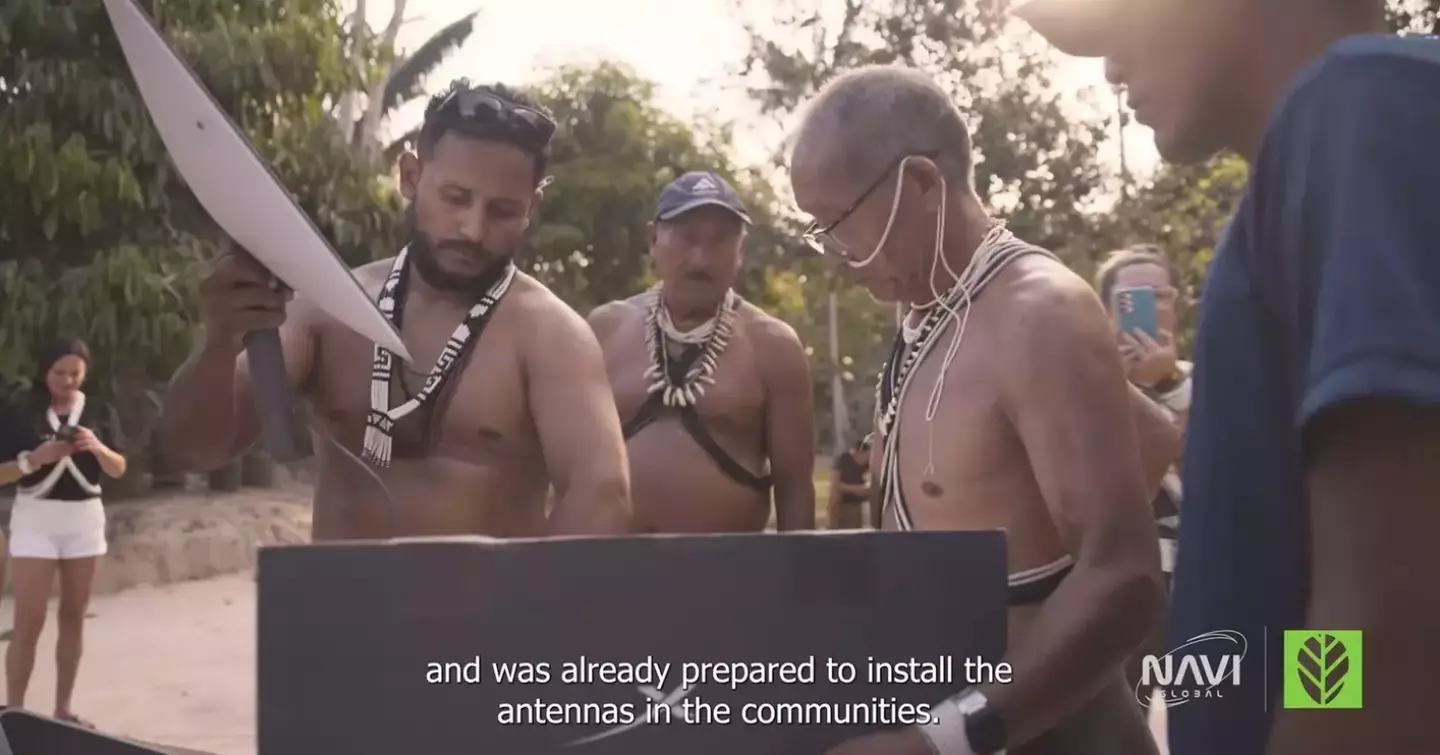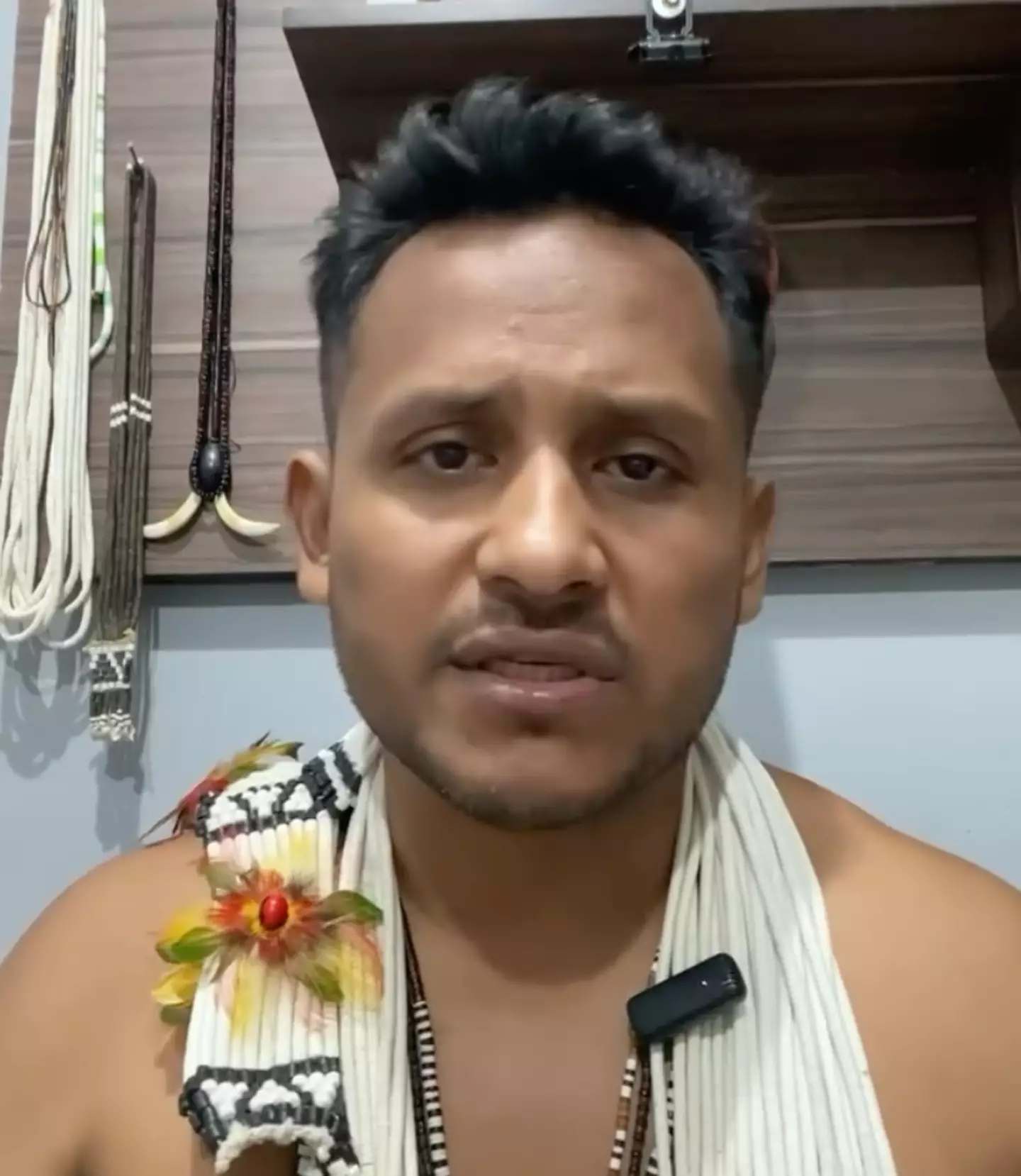
Last year, Brazil's Marubo people - who live in a remote area along the Ituí River - were given access to Elon Musk's satellite-internet service Starlink.
Before this, the tribe, who live in communal huts, had never had access to the internet.
After receiving the gift, tribesmen carried two antennas on their backs through the depths of the Amazon rainforest and the tribe has spent the past nine months getting familiar with the world wide web.
Advert
But, their reaction isn't what you might think.
"When it arrived, everyone was happy," 73-year-old Tsainama Marubo told The New York Times.
But, the tribe's elders soon began to notice negative changes in their community.
Advert
Marubo went on: "But now, things have gotten worse. Young people have gotten lazy because of the internet. They’re learning the ways of the white people."
The NYT article also reported issues such as gossip, social media addiction, online scams and exposure to explicit and violent content.
Alfredo Marubo, leader of a Marubo association of villages, also expressed concern over the spread of adult content amongst young people in the tribe, saying he's worried they are 'going to want to try' the graphic sex depicted in porn.
He also claimed that some elders had observed young men becoming more sexually aggressive.

Advert
Marubo leader Enoque Marubo, who initiated the introduction of the internet to his tribe, has since hit back at these claims in a video posted to Instagram on Sunday (9 June).
"I am here to repudiate the fake news that has been circulating around the world in the last week, alleging that the entry of the internet into our communities has resulted in addiction to pornography," he said.
"These statements are unfounded, false and only reflect a biased ideological current that disrespects our autonomy and identity."

He also criticised the NYT's focus on the negative impacts of the internet, which he said has led to a distorted view.
Advert
"I want to reiterate the repudiation [of] all these publications of unfounded lies that appeared on the internet," and added the internet is an 'important tool' for his people.
He then went on to highlight some of the positive impacts the internet has had, including facilitating communication, assisting teachers and enhancing security.
And, Enoque emphasised the Marubo tribe's desire for autonomy, criticising 'non-Indigenous or white people' who try to dictate what is best for them.
"We want our autonomy and we are tired of the violation of our rights.
"It hurts us, disrespects us, disrespects Indigenous peoples."
Topics: World News
